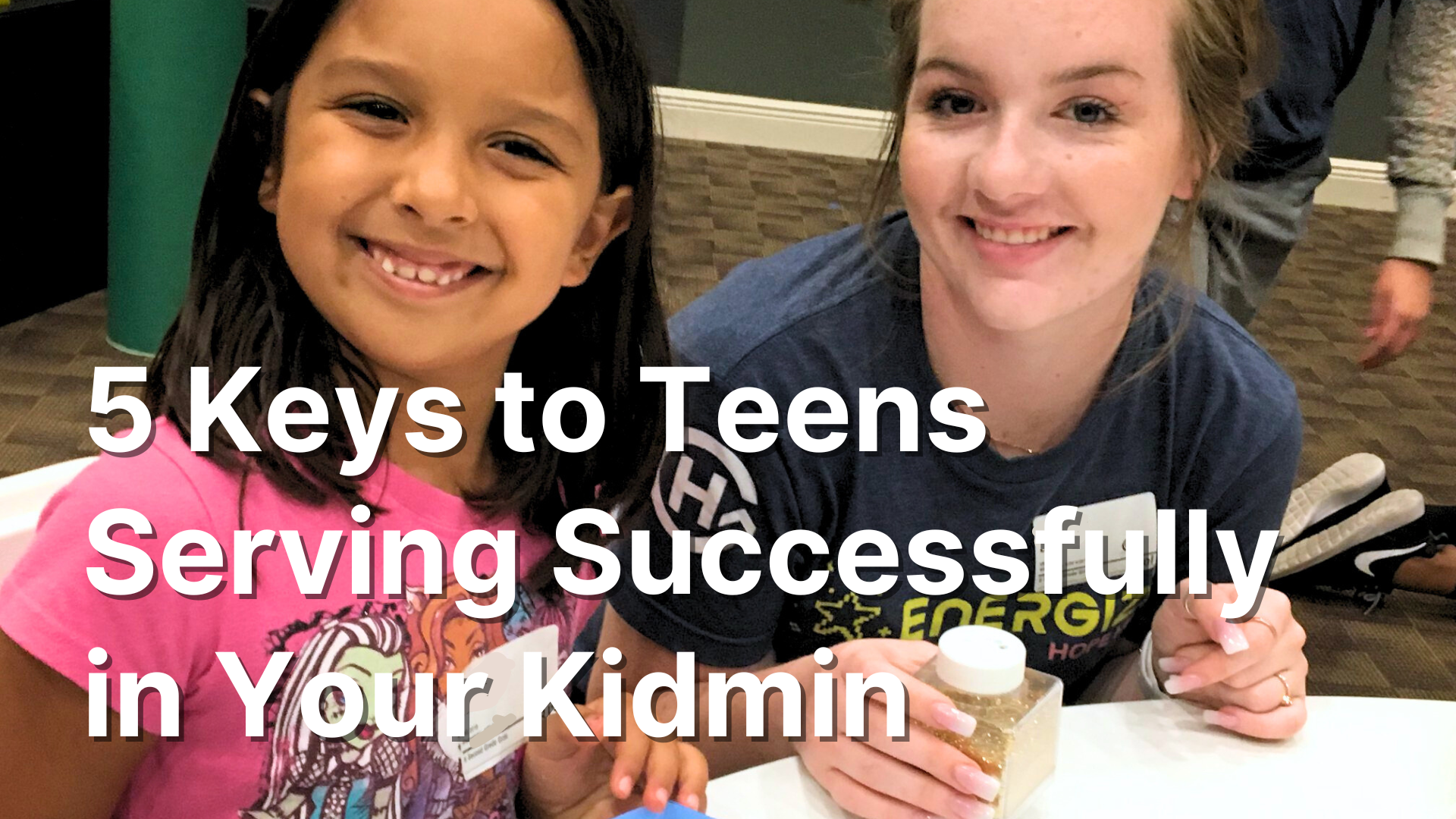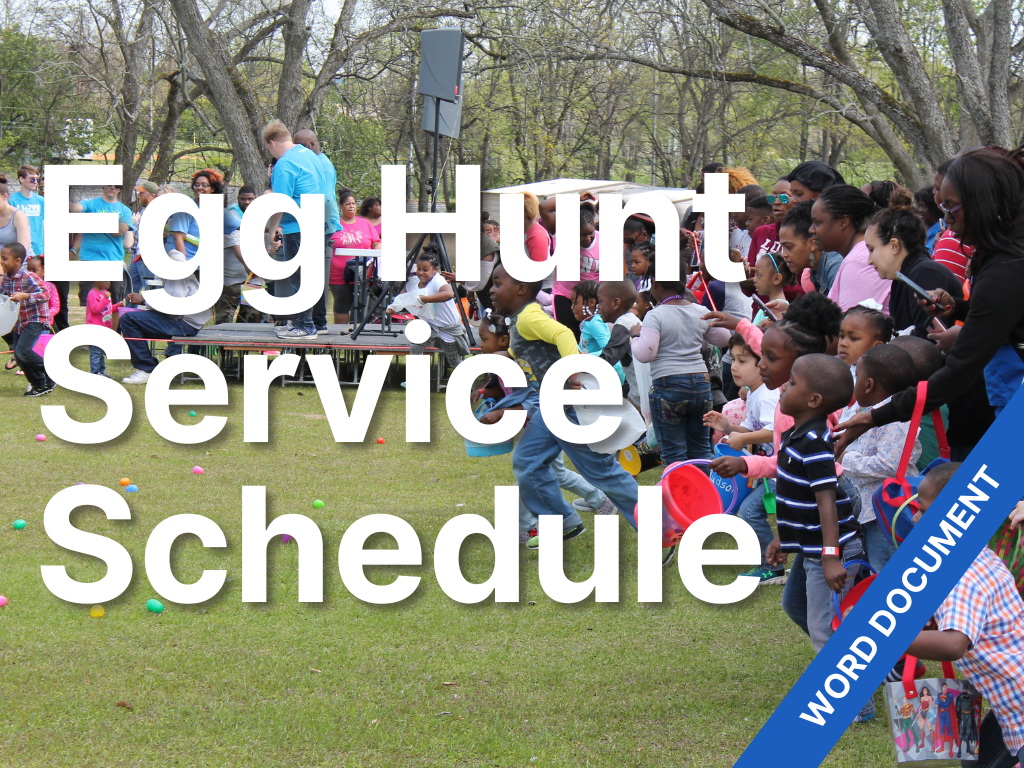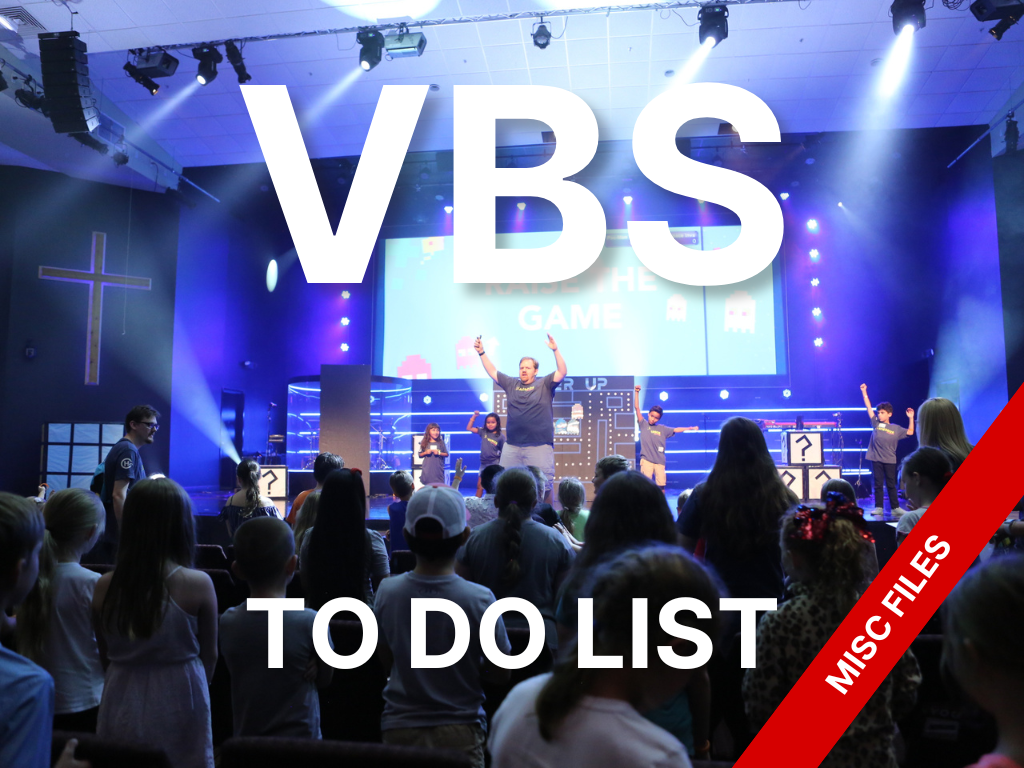5 Keys to Teens Serving Successfully in Your Kidmin
One thing that is an absolute certainty in kidmin is a general lack of volunteers. No matter how big your church is, there is always a shortage. However, there is a treasure trove of possible volunteers that we may overlook.
Teenagers.
Bringing in young people to your ministry can be scary. What can they do? What if they say something they’re not supposed to? What if I can’t count on them?
These are all valid questions and concerns. But ask yourself this question. Do you have the same concern for adults?
Yes, the possibility of a 16 year old doing something they’re not supposed to is higher, but that doesn’t mean we should discount them completely.
I’ve worked with teenagers in my ministry since day one. Without them, a lot of my ministry efforts would have failed. These young people are passionate, loving, committed, and willing to learn. But not every teen volunteer has been a bed of roses. There have been some that were less than stellar. As the years have gone by, I’ve developed 5 keys to guide these teens to lead at the highest levels of the ministry. They can help you too.
1. Believe in your teens
So many times, we have teens serve in our ministry and they become flaky, never showing up when we need them or when they do, they’re a complete distraction. Sometimes the reason is they’re not mature enough for the responsibility, but a lot of times it’s because we don’t give them enough to do, a vision to follow, a mission to embrace.
Many of your students are already leading their peers on the field or in clubs. They’re learning chemistry, biology, and geometry. They’re studying Shakespeare and the fall of the Roman empire. And we ask them to simply sit with the kids and keep them quiet. For some teens, this is all they can do, but a lot of them can do so much more.
So, the solution is to believe in them. Give them opportunities to try new things. Let them fail and catch them when they fall. Encourage them to pursue their passions within the ministry and invest in your kids. You never know what they might do.
A few years back, getting parents to go with me to kids camp was very difficult. There were two years, where I was the only chaperone for 12 kids. We did ok, and I’m super thankful for other kids pastors at the camp that helped pick up the slack. But I knew it couldn’t continue. So, I asked some teen girls to join me. Their younger brothers were already coming, and I was so desperate for help, I offered to let them go for free.
This was one of the best decisions I ever made. I thought I was bringing another warm body to help watch the kids. What I actually brought were ministry partners that made the whole experience better.
During service time, while I sat, watched, and prayed with the boys, they did the same with the girls. During one especially long altar call, my boys were ready to go, but many of the girls were still praying. I was torn as to what to do, but then I noticed right in the middle, were my teen leaders. They were praying and caring for those girls more than I ever could. I made sure they were ok and took with me all the kids that were ready to go. They stayed for another hour. I was super impressed. If I didn’t have those teens, we would have either completely disrupted the service or pulled kids away from what God was doing in them. I’m so glad I didn’t have to make that decision.
2. Set High Expectations
A lot of times, teens, in their immaturity, will take advantage of their new found power and get into mischief, cause distractions, or become domineering. Many teens want to come to kidmin because they don’t want to sit with the adults, and they find a safe hiding place in kidmin. In order to combat this tendency, I set high expectations and hold them to it.
Whenever I bring on a new volunteer, teen or otherwise, I express what is expected of them. I talk about proper classroom management, what to wear, cell phone policies, bathroom policies, and what they’re job looks like. They know when they’re expected to show up and when they can leave. As with any volunteer, I also let them know that if they don’t meet these expectations, they won’t be able to serve. I have a lot of grace and maybe too much patience with people. However, there have been times when I’ve had to let a teen volunteer go because it was harder with them there than when they weren’t.
You can see my policy and procedure manual I use for all my volunteers with my Volunteer Onboarding tools here.
3. Give your teens jobs
While I set high expectations for my volunteers, all my teens start off with one job, crowd control. Sometimes I’ll call it Small Group Leader Assistant, but that’s just another fancy way of saying I need you to sit with the kids and keep them focused.
While they may start there, I ask them where they’d like to serve. I believe a teen can serve in just about any position. I’ve had teens run check-in, slides and lights, lead small groups and worship, and even teach the lesson. It all depended on their passion, talent, and ability to meet expectations.
Kidmin is safe place to train future leaders. As much as we want to lead with excellence, kids are super forgiving. You can mess up royally, and then 10 minutes later, they won’t remember that anything went wrong. So, if you have a teen that’s showing aptitude for leading worship, let them cut their teeth in kids. If they’re rambunctious and can hold attention, let them lead the game or offering time. If they want to teach, challenge them to do the Bible story or sermon.
One teen I worked with felt she was called to be a worship pastor. The problem was she was stiff as a board as she led, but you could see her passion and worshipful spirit. I was struggling to teach my kids how to worship and was sure she could help. So, I invited her to work with me. I told her if she taught me kids how to worship, I’ll show her how to lead with energy and excitement. Within a year, she was a different worship leader. She’s a worship pastor now. She just got married. I’m so proud of her.
4. Train your teens to do more
One thing I’ve done that has really helped me set expectations and have quality teen volunteers is to have a kids leadership team. When kids enter fourth grade, they’re invited to join the team. Over the next few years, I teach them practical ministry skills leading up to them leading their own service. In addition, they learn basic discipleship principles like how to pray, read the Bible and witness. Once they enter middle school and are too old for kids’ church, I let them stay and serve in elementary. However, they still had to stay in the leadership program by memorizing scripture, reading the Bible, and serving regularly. By the time they are 16, I have a highly trained, qualified volunteer I can rely on.
If you’d like more information on how I ran the program, you can see that here.
5. Set limits on how often teens can serve
One thing about teenagers is that they will serve every week and every service if you let them. I know, because I have. It wasn’t until years later that I realized what a disservice I had done to them. They were spiritually stunted because I had never challenged them to grow in their relationship with God. I believe we can only serve out of our overflow. So, we ask all of our volunteers to work one and worship one. For every service they serve, they also need to attend one. For teens it’s a little different but the intent is the same.
Because a lot of teens who end up serving in kids do so because they’re not ready to leave, I find myself having to lovingly kick them out of the nest. I tell them to go to “Big Church” or Youth. They may not like it at first, but after a few months, they’ll adjust and really enjoy it.
However, I still want them to serve. It’s one of my milestones of a believer. So, I put limitations on them based on their grade level.
Sixth grade – 1 service a month
Seventh grade – 2 services a month
Eight grade – 3 services a month
Ninth grade – 4 services a month and a conversation
I’ve found this staged commitment helps the younger teens adjust to their new environment while also serving in their gifts and passions. Very few teens end up serving every week. Most of the ones who do feel like they’re called to kidmin, and I’m specifically training them to be a leader. This is part of an ongoing conversation with them, their parents and their youth pastor. Even still, I require them to attend a service whether it’s the adult service on Sunday or Youth on Wednesday.
Having teens in your ministry can be an absolute joy. They can be your best volunteers and bring way more energy and excitement than you can. You’re helping train the next generation of pastors and volunteers and setting them up for a lifetime of following Jesus. So, make the ask, take the risk, and see what God does in your ministry.




To have a great Easter Outreach, you need to have a plan. This field tested and approved Egg Hunt To Do List will walk you through step by step to have your best event.